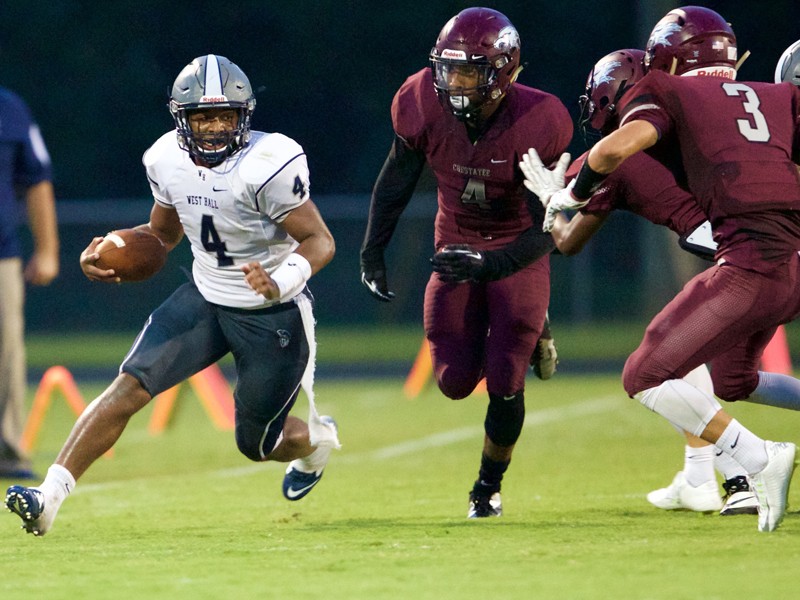MACON — Two years ago, the Georgia High School Association appeared to be planting the seeds to have spring football practice as a whole in Georgia become a thing of the past.
How quickly things change, however.
On Monday, the GHSA State Executive Committee unanimously voted to open the door, beginning in the spring of 2017, to let programs once again play other schools in their annual spring games.
The change in spring football -- the spring game can be conducted as the final (10th) practice of the spring season -- appeared an about-face to the direction GHSA had been headed and is a move the harkens back the mid-1980s when schools used the final spring to take on local or nearby rivals to generate some extra revenue for the programs.
North Forsyth Athletic Director Nathan Turner was surprised by the action.
“After they tried to do away with spring practice, to come full circle in such a short period of time is remarkable,” Turner said about the GHSA’s action. “I think everyone learned a couple of years ago how important the spring practice session is. (Playing other schools) is something that was done for a long time up until about the late 1980s. I think it’s a great move to get back to this.”
Turner cited his school’s own decision to opt out of a spring season in lieu of holding two scrimmage games in the fall leading up to the season-opener two seasons ago.
“We tried it that first year and quickly realized it was much better to have a spring season. We went back to having a spring practice last year, as did most everyone else,” Turner said.
Of course, nothing is perfect, and finding an opponent with the same spring season will be the trick. For instance, St. Pius is a traditional February spring practice program. Most teams don’t begin their spring seasons until April or May.
“That will be the challenge,” Turner said. “If you want to scrimmage someone at the end of spring you almost have to coordinate with them a year ahead of time. It will be interesting to see who is able to work those kinds of things out. It’s definitely not perfect but I believe this is the better way to do things.”
Turner also said during Committee discussions that potential revenue streams were a factor in the decision.
“Well, what has happened, I think, is that they see what is going on lately with spring games in college and feel that maybe this is something we can do on the high school level,” Turner said. “Sometimes it’s not always a good idea to do things because we think there may be a way to generate some extra funds. Again, the key to this is finding a school that has the same schedule you have. That is going to be a challenge for most of us.
“But, I feel this is the best way for us to go. We’re going to try and find someone to scrimmage with next spring. But we don’t want to scrimmage someone we’re going to play in the regular season. I think it would be fun to see maybe the Hall County and Forsyth County schools go back to playing each other more and this would be a great way to do that.”
Spring games weren’t the only thing on the minds of the executive committee:
- The state golf tournaments now will conclude with two-day, 36-hole finals beginning in 2017. Currently the golf finals are just one-day, 18-hole events.
- The state basketball tournament will return to having all quarterfinal rounds return the home gym of the higher seeded teams.
- The committee approved to reinstate slow-pitch as a varsity sport for the spring.The committee said girls will be allowed to play fastpitch in the fall and slow-pitch in the spring. The GHSA discontinued slow-pitch after 2008 due to low numbers and few teams once fast pitch became popular. However, the committee rejected a proposal for a final-four bracket for fastpitch softball.
- A proposal to meld the lower classifications in soccer, wrestling and volleyball was turned down. Instead, they will have four areas per classification instead of eight regions. That will mean fewer playoff teams but make for seven state champions instead of just five.










